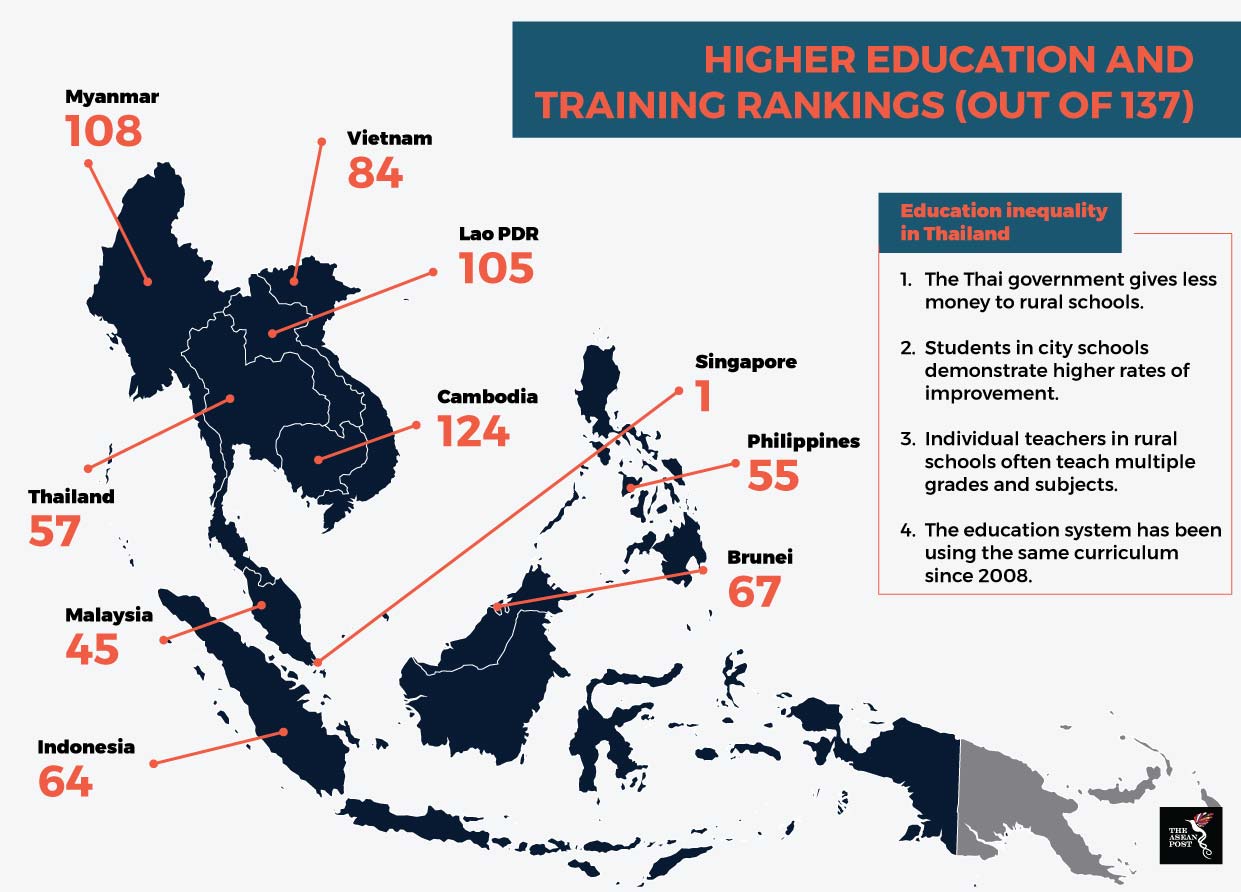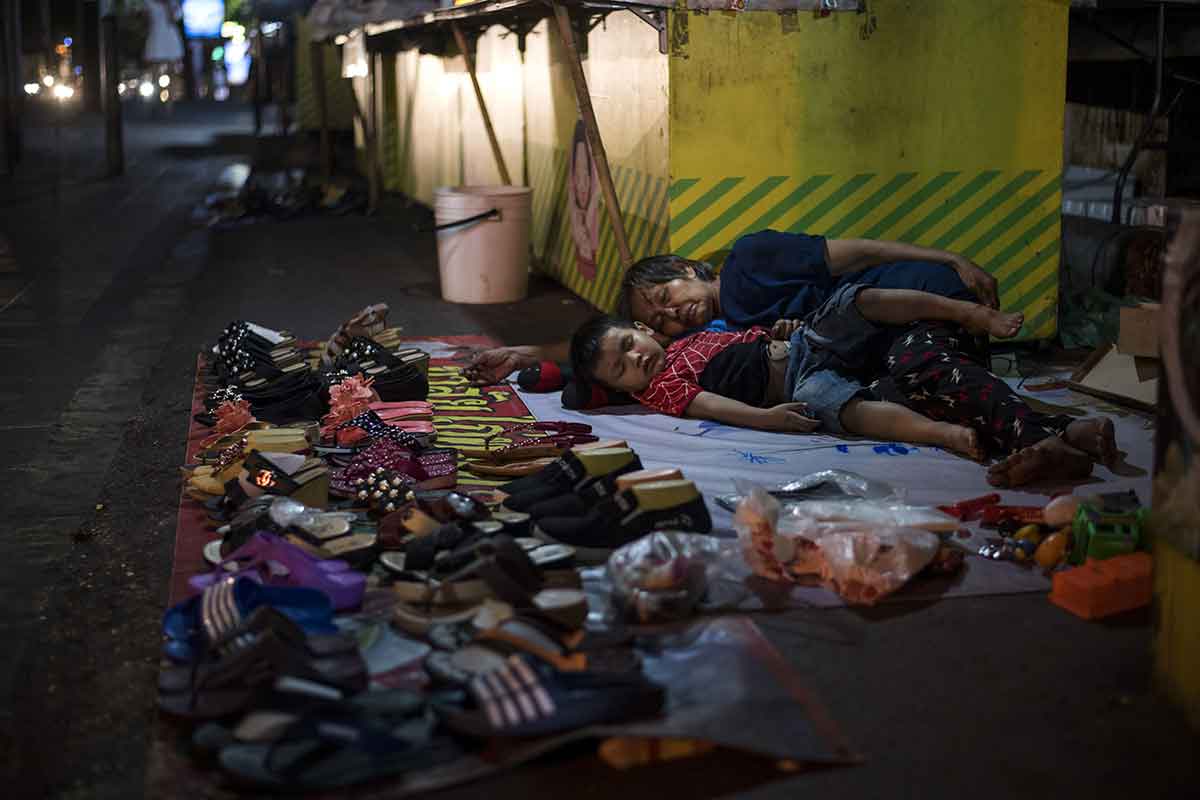A recent Credit Suisse report named Thailand the most unequal country in the world, with just one percent of the population owning 66.9 percent of the nation’s wealth. The findings prompted We Fair Network, social justice advocacy group made up of 13 organisations to call for serious reforms of Thailand’s budget and welfare system.
The group presented its proposal for the reform of the country’s welfare system based on seven aspects to key political figures at a forum earlier this week. The seven fronts were education, healthcare, housing, employment, pension and social equality.
The group said improving the welfare system, making changes to tax collection and improving budget management were essential to solving the problems of wealth disparity and social inequality. It also said that progressive policies to create an efficient universal welfare system were necessary for combating the problem of gross social inequality.
The We Fair Network also cautioned that the government’s approach to reducing poverty and social inequality by targeting social welfare at the poor only was misguided. Decharut Sukkumnoed, an economics professor at Kasetsart University, said at the root of social disparity in Thailand was insufficient and poor-quality welfare as well as unequal access to state welfare among citizens.
“Many poor people are unable to pursue their goals and improve their livelihoods because they do not get enough assistance from authorities to get good education, which is an important foundation in life,” he said.
“Meanwhile, many middle-class people are also facing financial problems as they have to rely on expensive education and healthcare services from the private sector, because the quality of state welfare is poor.”
This was reiterated by United States (US)-based non-profit organisation, the Borgen Project on its official website where it noted that while the government had spent 19.4 percent of its yearly budget on education in 2015 – the largest allocation for any one particular sector - Thailand was yet to see cumulative improvements in its schools.
“The lack of success might be the result of poorly divided funds. Instead of distributing it equally, the government funnels a large proportion of money toward schools where students already have a high likelihood to succeed and gives less to smaller and more rural schools,” the Borgen Project noted.
As a result, schools in poor areas must stretch their resources thin and individual teachers often teach multiple grades and subjects. Due to these inequalities, students in city schools demonstrate higher rates of improvement compared to those in rural schools.
The Borgen Project also noted that while funding inequality puts small, rural schools at a particular disadvantage, the outdated curriculum does a disservice to all Thai schools.
“The system has used the same curriculum since 2008, which itself is only a slightly edited version of the curriculum from 2001.”
The state of education in Thailand
Going by the Programme for International Student Assessment (PISA) scores for the last three surveys (2009, 2012 and 2015), Thailand’s education system has been struggling. In 2009, its overall ranking was 50th out of 65 countries, in 2012, Thailand was ranked 50th again out of 65 countries, and in 2015, it ranked 54th out of 70 countries.
The World Economic Forum’s (WEF) Global Competitiveness Index 2017-2018, did not have anything different to say about the country’s education system either. For Higher Education and Training, Thailand was placed 57th out of 137 countries. Brunei was 67th, Cambodia was 124th, Indonesia was 64th, Lao PDR was 105th, Malaysia was 45th, Myanmar was 108th, Philippines was 55th, Singapore was first and Vietnam was 84th.

Source: World Economic Forum and Borgen Project
But the ones suffering most from a lack of quality education – and in effect lower English proficiency – are those unable to afford good quality education in Thailand where education inequality is still rampant.
Stephen Holroyd, principal of Shrewsbury International School in Bangkok found that elite schools continue to send their most affluent students to expensive Oxbridge and Ivy League universities in the United Kingdom (UK) and the US. These internationally educated students are better positioned to get top jobs in Thailand not only because of the quality education they’ve received but also by networking with other elite foreign university students in Thailand.
An election year
2019 will hopefully see Thailand’s first election since 2014 when the military under the leadership of current Prime Minister Prayut Chan-o-cha took control of the government. Today, Prayut’s greatest challenge seems to be coming from the Pheu Thai Party that is supported largely by the country’s poor.
The reason why Pheu Thai receives most of its support from Thailand’s rural and urban poor is simply because it was the Shinawatras who came up with policies such as universal healthcare, debt relief, loans for start-up businesses and big rice subsidies for farmers.
Last week, reports in Thailand revealed that about 600,000 students considered to be “very poor” will soon receive an extra US$24 per semester from the state, as the Equitable Education Fund (EEF) is stepping in to help reduce educational disparities. According to the joint plan of the EEF and the Office of Basic Education Commission (OBEC), the extra subsidy will be handed out from next month onwards.
Whether or not this is a political move to take support away from Pheu Thai and prove that Prayut is just as able to help the poor is yet to be ascertained. But if the current government wishes to remain in power after the 24 February election, then it will have to deal with the problem of education on a much deeper level. As the We Fair Network asserts, it isn’t enough to throw money at the problem – the quality of education in Thailand must improve so that it isn’t just the elites who have access to good quality education.
Related articles:
